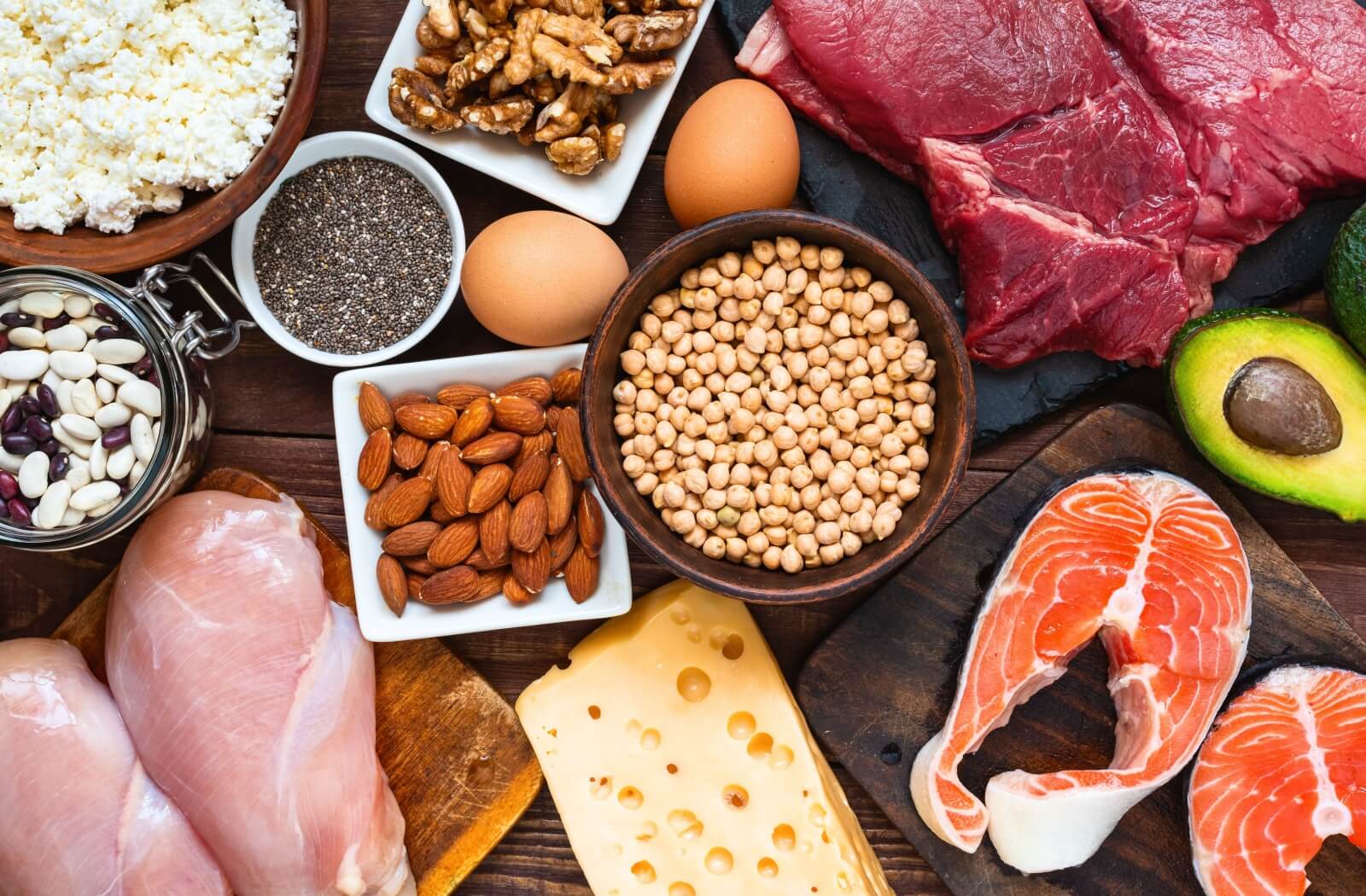Key Takeaways
- Protein is crucial for preserving muscle mass, supporting immune health, and promoting overall vitality.
- Seniors should incorporate high-protein foods like eggs, lean meats, fish, beans, and dairy products into their diet.
- Senior living communities often focus on wellness by providing balanced, protein-rich meals tailored to meet nutritional needs.
As we age, proper nutrition is key to staying active and independent. Protein is essential for preserving muscle, supporting immunity, and maintaining vitality. High-protein foods like eggs, lean meats, fish, beans, and dairy products are excellent options for seniors.
Many senior living communities prioritize wellness by offering balanced, protein-rich meals that cater to nutritional needs, ensuring residents maintain a high quality of life.
Understanding Protein Needs for Seniors
Seniors require more protein per pound of body weight than younger adults. While the general recommendation for adults is 0.8 grams of protein per kilogram of body weight, older adults typically need 1.0 to 1.2 grams per kilogram. This increased need helps combat age-related muscle loss, known as sarcopenia, which can begin as early as age 30 and accelerates after 60.
Adequate protein intake supports wound healing, maintains bone density, and helps the immune system function properly. Without enough protein, seniors may experience fatigue, slower recovery from illness, and increased risk of falls due to muscle weakness.
High-Protein Foods for Senior Nutrition
A well-balanced, high-protein diet is essential for seniors to maintain health and vitality. Eating a variety of protein sources supports muscle strength, bone health, and overall well-being.
Lean Meats
Chicken, turkey, and lean beef provide complete proteins with all essential amino acids. A 3-ounce serving of chicken delivers about 26 grams of protein. These meats are versatile and suit various tastes and dietary needs.
Fish & Seafood
Salmon, tuna, sardines, and other fish offer high-quality protein and omega-3 fatty acids. Canned fish is convenient and long-lasting. A 3-ounce serving of salmon packs 22 grams of protein and heart-healthy fats.
Dairy Products
Greek yogurt, cottage cheese, and milk are excellent sources of protein and calcium for bone health. Greek yogurt contains nearly double the protein of regular yogurt, with one cup offering about 20 grams. These foods are easy to digest and fit any meal.
Eggs
Eggs are affordable, versatile, and packed with complete protein. One large egg provides 6 grams of protein and can be prepared in countless ways for any meal.
Legumes
Beans, lentils, and chickpeas deliver plant-based protein, fiber, and minerals. While not complete proteins alone, they pair with whole grains to provide all essential amino acids. One cup of cooked lentils offers 18 grams of protein.
Quinoa
This grain is unique because it contains all nine essential amino acids. One cup of cooked quinoa has 8 grams of protein and works well in salads, soups, or side dishes.
Nuts & Seeds
Almonds, walnuts, chia seeds, and hemp seeds provide protein and healthy fats. Though higher in calories, they make great snacks or meal additions. Two tablespoons of almond butter contain about 8 grams of protein.
Addressing Challenges in Senior Nutrition

Maintaining proper nutrition can be challenging for seniors due to physical, medical, and financial factors. However, with some simple strategies, eating well is possible—even enjoyable.
- Address Dental Issues: Soft proteins like eggs, fish, and dairy are easy to eat for people with dental-related eating challenges. Canned fish and beans are affordable and convenient alternatives too.
- Plan Ahead: Cook large batches of protein-rich meals and freeze portions to save time and reduce effort.
- Work with Healthcare Providers: Talk to professionals about appetite loss or medication-related eating issues. Adjusting medication timing or managing health conditions can help.
- Choose Budget-Friendly Options: Non-perishable proteins like canned fish, beans, and lentils can stretch limited budgets.
With minor changes and support, seniors can improve nutrition and overall well-being.
Tips for Incorporating High-Protein Foods into Meals
Protein is key for energy, stable blood sugar, and muscle health. Here’s how to add more protein to your diet:
- Start Strong: Choose high-protein breakfasts like scrambled eggs with cheese, Greek yogurt with nuts, or oatmeal made with milk.
- Snack Smart: Go for protein-rich snacks like hard-boiled eggs, cheese and crackers, or a handful of nuts.
- Boost Your Meals: Add beans to soups, nuts to salads, or Greek yogurt to smoothies for an easy protein boost.
- Spread It Out: Distribute protein throughout the day, as your body can only use 25-30 grams at a time for muscle building.
These simple tips make it easy to meet your protein needs and support your health!
Supporting Nutritional Success Through Community Dining
Senior living communities offer a great way to meet the nutritional needs of older adults, combining health with enjoyment.
- Expert Nutrition Planning: Dining staff create meals that balance nutrients and great taste.
- Social Dining Benefits: Community dining encourages regular meals and exposes residents to new foods.
- Customizable Meals: Kitchens accommodate dietary needs, texture changes, and personal preferences.
- The Landmark’s Flavorful Approach: At The Landmark, our Flavorful dining program pairs proper nutrition with comforting Southern-inspired dishes.
With thoughtful meals and welcoming dining experiences, senior living communities make healthy eating easy and enjoyable.
Culinary Dining for Overall Well-Being
Beyond individual food choices, the dining experience itself plays a vital role in senior nutrition. Sharing meals with others encourages better eating habits and provides essential social connections. The atmosphere, presentation, and variety of foods all contribute to a satisfying dining experience and nutritional success.
At The Landmark Center, we understand these connections, which is why our professional culinary program creates dining experiences that combine proper nutrition with the pleasure of good food and companionship. This approach recognizes that eating well involves more than just consuming nutrients—it’s about maintaining dignity, choice, and enjoyment in daily life.
Contact us today to learn how our community can help your loved one increase their protein intake.

